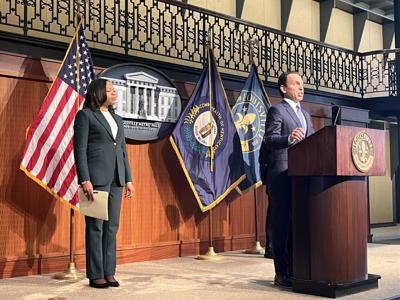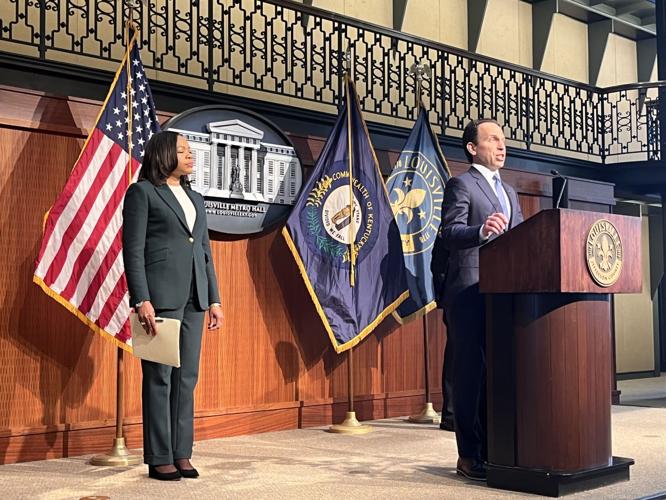LOUISVILLE, Ky. (WDRB) -- Louisville Metro government and federal officials are pausing the effort to hire an outside group that would ensure the city's compliance with a sweeping police reform deal.
The move comes as Louisville and the U.S. Department of Justice work to respond to questions in federal court, where a judge has raised skepticism about the court's role in the agreement known as a consent decree.
In addition, President Donald Trump's Justice Department has said it may abandon some agreements reached during the term of former President Joe Biden — another obstacle putting Louisville's deal into doubt.
A court-ordered decree would fund an independent monitor to oversee the Louisville Metro Police Department's progress and report to the court, costing no more than $1.475 million annually for an initial two-year term. A monitor is typically a team of experts in policing, law and other specialties.
But Wednesday afternoon a top city attorney said officials are halting submissions for the monitor role until U.S. District Judge Benjamin Beaton issues a ruling.
"We have agreed to pause submissions until the court rules on the joint motion to enter the decree," Megan A. Metcalf, Mayor Craig Greenberg's deputy general counsel, told prospective bidders on the city's business procurement portal.
She said those submissions will resume later with a new application deadline. The deadline had been 5 p.m. Thursday.
Greenberg spokesman Kevin Trager declined to comment further.
In 2023, the Justice Department concluded that Louisville police and Metro government for years allegedly engaged in practices that violated the U.S. Constitution and federal law, including excessive use of force and searches based on invalid warrants.
The investigation began after the 2020 police killing of Breonna Taylor, which prompted both local and national criticism of the police department and triggered months of protests. The federal probe cited 63 different incidents of alleged misconduct.
The city and Justice Department negotiated for nine months before agreeing to the consent decree in December.
At a hearing in federal court in Louisville this month, Beaton expressed concern that a judge could be responsible for "day to day operations" of the police department — rather than city officials — if the consent decree is approved.
Beaton suggested a "less intrusive" way of reforming the police department without court oversight and monitoring.
He said he wasn't sure the court's involvement — a common practice in similar cases — was warranted in Louisville, where LMPD has already made several of the recommended changes and committed to further reforms.
But Paul Killebrew, the Justice Department's deputy chief of special litigation, argued that the consent decree is necessary, "citing half measures and efforts that failed before" by LMPD.
"Given the track record of the city before, we need the threat of contempt," Killebrew said.
Metro and the Justice Department have until Feb. 18 to respond to Beaton's questions. Among other things, he is asking why a court order is needed if "the reforms contemplated in the decree are already underway."
LMPD Chief Paul Humphrey has said he is "fully committed" to reforming the department even without a consent decree.
Related Stories:
- LMPD Chief Paul Humphrey says he is 'fully committed' to reforming department even without consent decree
- Trump's new Justice Department leadership orders a freeze on civil rights cases, including Louisville
- Federal judge questions need for court oversight of Louisville police reform deal
- Louisville and the DOJ agreed to a consent decree. Here's what it means and what comes next.
Copyright 2025 WDRB Media. All Rights Reserved.














